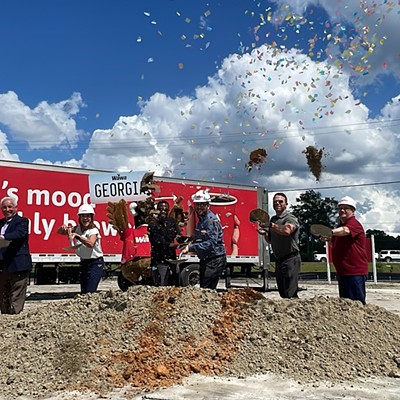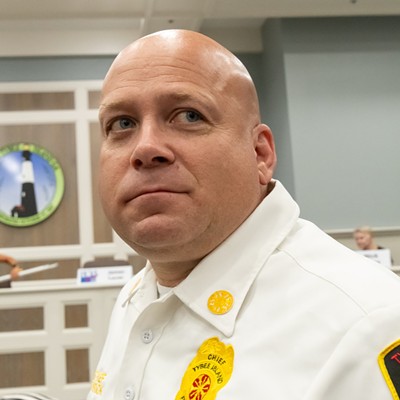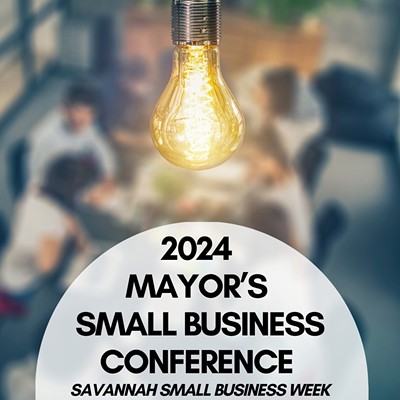"I see it as becoming kind of a boring thing in the next five years, actually."
That's what writer Elly Blue told an interviewer earlier this month. What was she talking about?
Bicycling, of course.
The author of Bikenomics: How Bicycling Can Save the Economy was interviewed for an article published on Salon.com.
Blue wasn't talking about local cyclists taking to the trails at Prince Landing or Tom Triplett Park on their mountain bikes. Nor was she referring to the group rides that depart weekly from Gallery Espresso or Coastal Bicycle Touring Club excursions in Chatham County and surrounding areas.
These people are not bored. They are having fun.
Was she talking about the feeling of freedom and independence I experience when I ride my bike to the store or to work, trips I used to make by car? Not exactly.
"You don't think about going grocery shopping as an exciting adventure, normally, but when you go by bike now, in most cities, it is," Blue told interviewer Lindsay Abrams. "The idea is that in five years, it probably won't be that way. It'll just be what you need to do after work."
Blue's point is that in many cities bicycling is increasingly viewed as perfectly normal. Public demand has triggered investments in infrastructure that make more people feel more confident on their bicycles. In communities that have taken public safety seriously and dedicated resources accordingly, city cycling isn't regarded as something only for people who are brave or bonkers. It's something regular folks feel safe and comfortable doing. It's routine.
That doesn't mean everyday cycling will become boring. It can still be liberating, empowering and fun.
Instead, if Blue's prediction is correct, people will be met with fewer quizzical glances when they arrive at work, class, dinner dates, doctor's appointments, supermarkets, sporting events, or civic meetings on bikes.
"You mean to tell me you rode your bike here?" That question will be asked less frequently, and it can't happen soon enough in our area, as people seem to cling tightly to ideas that aren't grounded in fact.
One of the most persistent is the notion that we don't need additional infrastructure because cyclists are not using the facilities currently offered. Here's the thing: If you view the world from behind the wheel of a car at speed, many details will escape you.
I've heard complaints from motorists who never see bicyclists in Price Street bike lane. My experience is exactly the opposite. I ride my bike on Price Street almost every day and I've never not seen other cyclists using the bike lane (I've seen quite a few motorists using it as well).
Drivers tend to focus on other cars and — unfortunately — less appropriate objects of attention such as their phones. This can prevent them from detecting the presence of other road users. That's one reason why, "I didn't see him!" is a refrain heard often after motorists collide with cyclists.
A companion misconception is the belief that we already have a massive inventory of bike lanes. If only cycling infrastructure was as plentiful as these folks seem to think.
If you measure the centerline mileage of the City of Savannah's road network, you come up with about 727 miles of streets. At present, only 8.75 miles of the 727-mile network feature conventional bike lanes with a rideable surface greater than or equal to four feet. The good news is Savannah has extended the network in recent years and some of our streets are quite bikeable without bike lanes.
Still, for many people a bicycle lane confirms that a street is appropriate and safe for cycling. Roger Geller, in his work for the Portland Department of Transportation, developed categories of transportational cyclists. "Strong and Fearless" cyclists "will ride under any conditions," according to Geller. A very small minority of cyclists, 1-2 percent of the population, belongs to this group.
"Enthused but Confident" people make up about 7 percent. Most people, some 60 percent, fall into the "Interested but Concerned" category. They are concerned about sharing the streets with cars and trucks, and will go out of their way to use facilities that "work well for bicycles."
If we can make worrying about bicycling boring and unnecessary for these folks, while making the actual bicycling more enjoyable and convenient, our entire community will benefit. cs

























